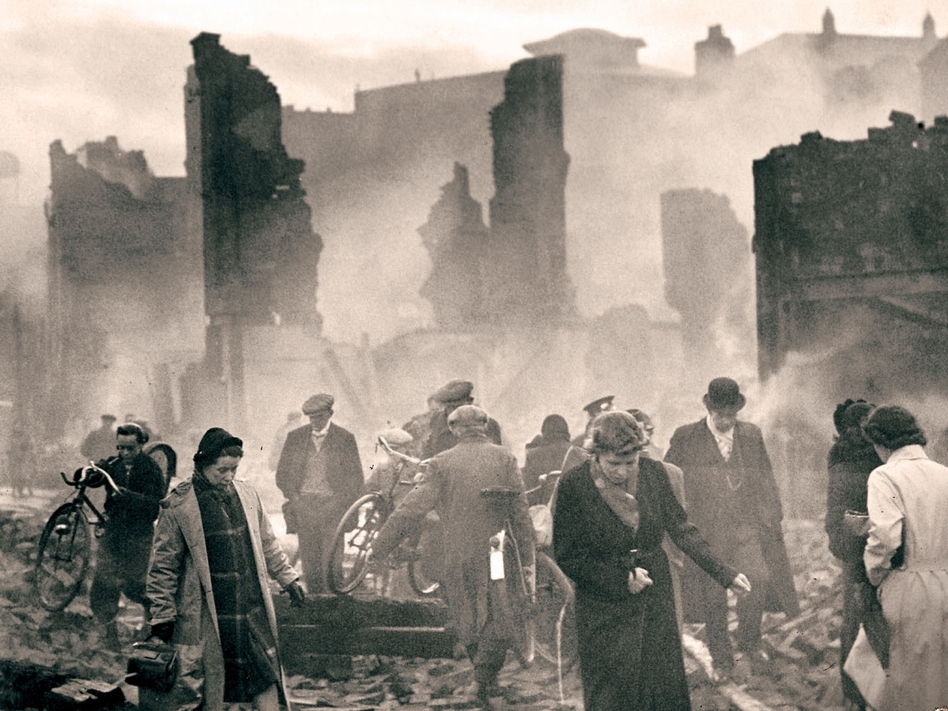Dearly beloved, avenge not yourselves, but rather give place unto wrath: for it is written, Vengeance is mine; I will repay, saith the Lord. — Romans 12:19
“I shall never forgive him as long as I live!” She bawled at the judge, then took out a small, white hanky from her designer purse, unfolded it, and in trembling emotions, wiped away tears. “He ruined my life! How can I ever again walk down the street at night without fear of being robbed!”
Her attacker, the man who stole her purse—the black designer purse, not the red one she carried into the witness stand with her, sat quietly in the accuser’s box, head bent, avoiding eye contact with the judge.

Although the above scene is fictional, it’s analogous to cases of near theatrical drama played out in society today of people who feel they have been seriously wronged or insulted. All one has to do is listen to the evening news or watch popular television’s court dramas to realize that we’re obsessed with hate and vengeance—and our need for justice!
I don’t have any official, peer-reviewed studies to quote from to back my findings, but I’ve lived long enough and witnessed many cases where the incidents often were more drama than real injustices.
Although the following story is loosely based on a true story about a couple I once knew, I embellish highlights to emphasize some important points.
For the first year of their marriage, this couple were madly in love with each other. They were like two pieces of harmoniously locked Lego©. They had the same interests; they went to the movies together; they went shopping together, they even enjoyed mutual friends.
Gradually, however, the husband got involved in activities and interests that did not involve his wife. He even started drinking. Five years later, the husband finally approached his wife and asked for a divorce.
Call it rage, indignity, or plain fury, but the wife did not accept the husband’s request for a divorce lightly. She felt extremely hurt and humiliated and vowed that she would do everything in her power to see that that “unfaithful rat” (her husband) gets totally ruined and humiliated.
The husband finally got his divorce, although the court battle was steamy and expensive. The husband was willing to concede much of their joint property—just leave him with some dignity. But the wife would have none of that. The rat had to be completely ruined!
In her bitterness, what the wife did not realize was that the long-drawn-out court proceedings and lawyer fees not only financially ruined—now her ex-husband, but also ruined her: the lawyers were the new owners of her once-beautiful home, their Daimler sports car, and their once-joint bank account.
Long-suffering and patience are a virtue
If the wife would have been more patient and thoughtful, if she would have waited just two years, her desire to see her ex-husband ruined would have come true, naturally, with any effort on her part. And she would still be living in her beautiful home, and possibly still driving her Daimler sports car.
It ended up that the woman at the center of the reason for the ex-husband’s divorce changed her mind about marrying him, so in frustration and disappointment, he took to drinking—heavy drinking, ending up penniless and homeless.
Perceived injustice is everywhere in society. Who cannot find at least one person in their life who has committed an injustice to them? Unfortunately, to carry the anger of unforgiving injustice in your heart for the rest of your life only weighs heavily on your own health. It’s like drinking a cup of poison to hurt your accused. You end up hurting yourself!
The good news is, there really is justice. It’s just that we’re often consciously so busy carrying the burden of our injustice, we don’t see the complete picture. I’ve shown one example of justice in the above story about the husband and wife who, in the first year of their marriage, cared deeply about each other. But later, their marriage turned very dysfunctional.
Taking into consideration the complexity of almost any situation in life, it is difficult, if not impossible, to lay the fault on either person or an event. Negotiation, where possible, is a preferred option. However, like in the above situation where one member refuses to negotiate, it is often best to leave ‘justice’ in the hands of a Higher Power.
Creation is too complex to believe that life began through an unconscious series of events. To even consider such a possibility, my question then would be, who brought into existence the laws of physics and metaphysics to even give stability to life as we know it?
Thus, given the possibility that an intelligent ‘Super Mind,’ is behind creation, it would only seem logical that such this Mind—God, would care equally for both the antagonist and the recipient of the antagonism, and that metaphysical law would ensure justice prevailed.
To forgive a person for an injustice that they might have done to you is not to “let them off the hook,” so to speak. They are still responsible for dealing with their own actions. You are forgiving yourself for any anger you may have felt during the incident, thus clearing your own conscience and “leaving the details of justice to God.”
